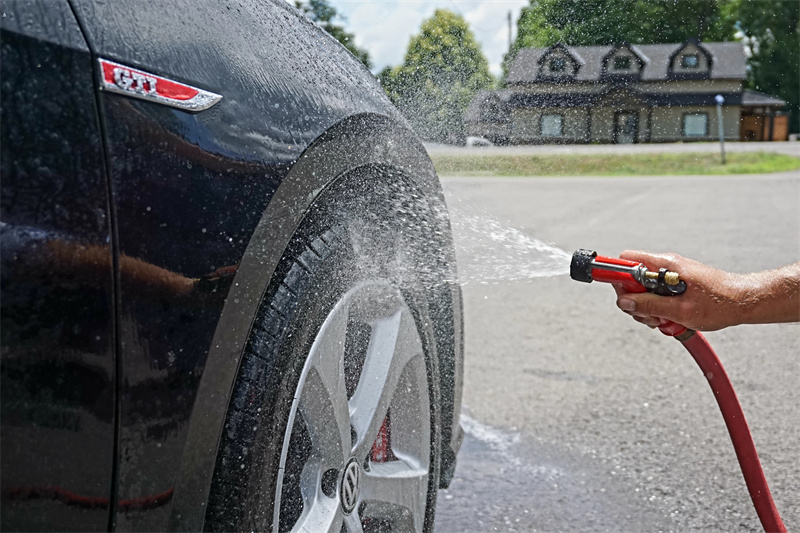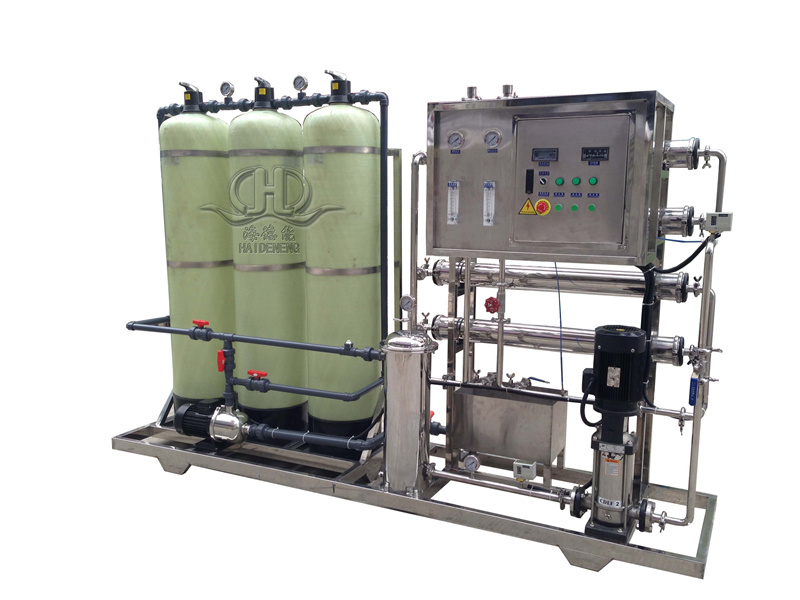Reverse osmosis water plays a crucial role in various industries, including electroplating, glass coating, ultrasonic cleaning, automotive cleaning, and surface coating of building materials. Here's a detailed description of their applications and benefits:
Electroplating: Reverse osmosis water is widely used in electroplating processes to ensure high-quality plating results. By removing impurities and contaminants from the water, reverse osmosis ensures that the plating solution remains pure and free from any substances that may interfere with the electrochemical reactions. This helps to achieve uniform and consistent plating thickness, improved surface finish, and overall enhanced product appearance and performance.

Glass Coating: Reverse osmosis water is crucial in the glass industry, particularly for the production of coated glass. Coated glass offers various benefits such as improved thermal insulation, solar control, and self-cleaning properties. Reverse osmosis water guarantees the purity of the coating solution, eliminating impurities that could negatively affect the adhesion and durability of the coating. The use of reverse osmosis water in glass coating ensures the production of high-quality, durable, and aesthetically appealing coated glass products.

Ultrasonic Cleaning: Reverse osmosis water is extensively used in ultrasonic cleaning processes, where ultrasonic waves are used to clean delicate and intricate parts and components. The high purity of reverse osmosis water ensures that no impurities or contaminants interfere with the cleaning process. It helps to prevent the deposition of minerals or residues on the surfaces being cleaned, ensuring thorough and consistent cleaning results. Reverse osmosis water maximizes the efficiency and effectiveness of ultrasonic cleaning, leading to improved product quality and reduced maintenance costs.
Automotive Cleaning: Reverse osmosis water finds applications in automotive cleaning, both in professional car washes and at home. Its high purity eliminates the risks of leaving water spots or streaks on the vehicle's exterior surface. Reverse osmosis water effectively removes minerals, dirt, and other impurities from the vehicle's surface, providing a spotless and streak-free finish. By using reverse osmosis water in automotive cleaning, one can achieve a higher standard of cleanliness and maintain the shine and appearance of the vehicle.
Surface Coating of Building Materials: Reverse osmosis water is commonly utilized for surface coating applications in the building materials industry. It ensures the purity of the coating material, preventing any impurities or particulates from affecting the coating's adhesion and finish. Reverse osmosis water helps in achieving a smooth and uniform coating on surfaces like metal, wood, or plastic, enhancing their appearance, durability, and resistance to environmental factors such as corrosion and weathering. Using reverse osmosis water in surface coating processes guarantees high-quality and long-lasting finish for building materials.
In summary, reverse osmosis water plays a vital role in electroplating, glass coating, ultrasonic cleaning, automotive cleaning, and surface coating of building materials. Its high purity and removal of impurities contribute to improved quality, performance, and appearance in these industries. Reverse osmosis water ensures optimal production processes, resulting in enhanced product durability, efficiency, and customer satisfaction.

